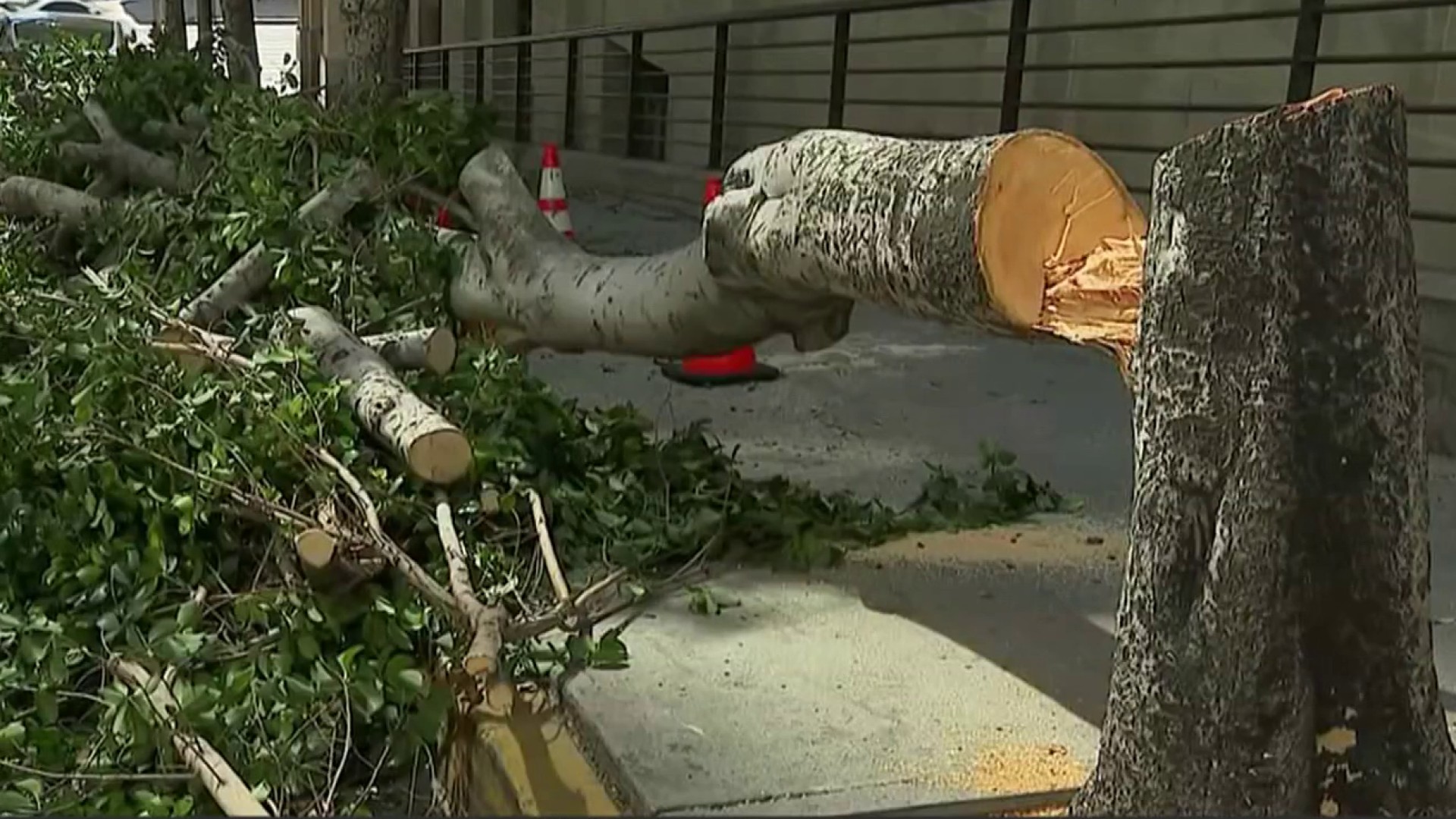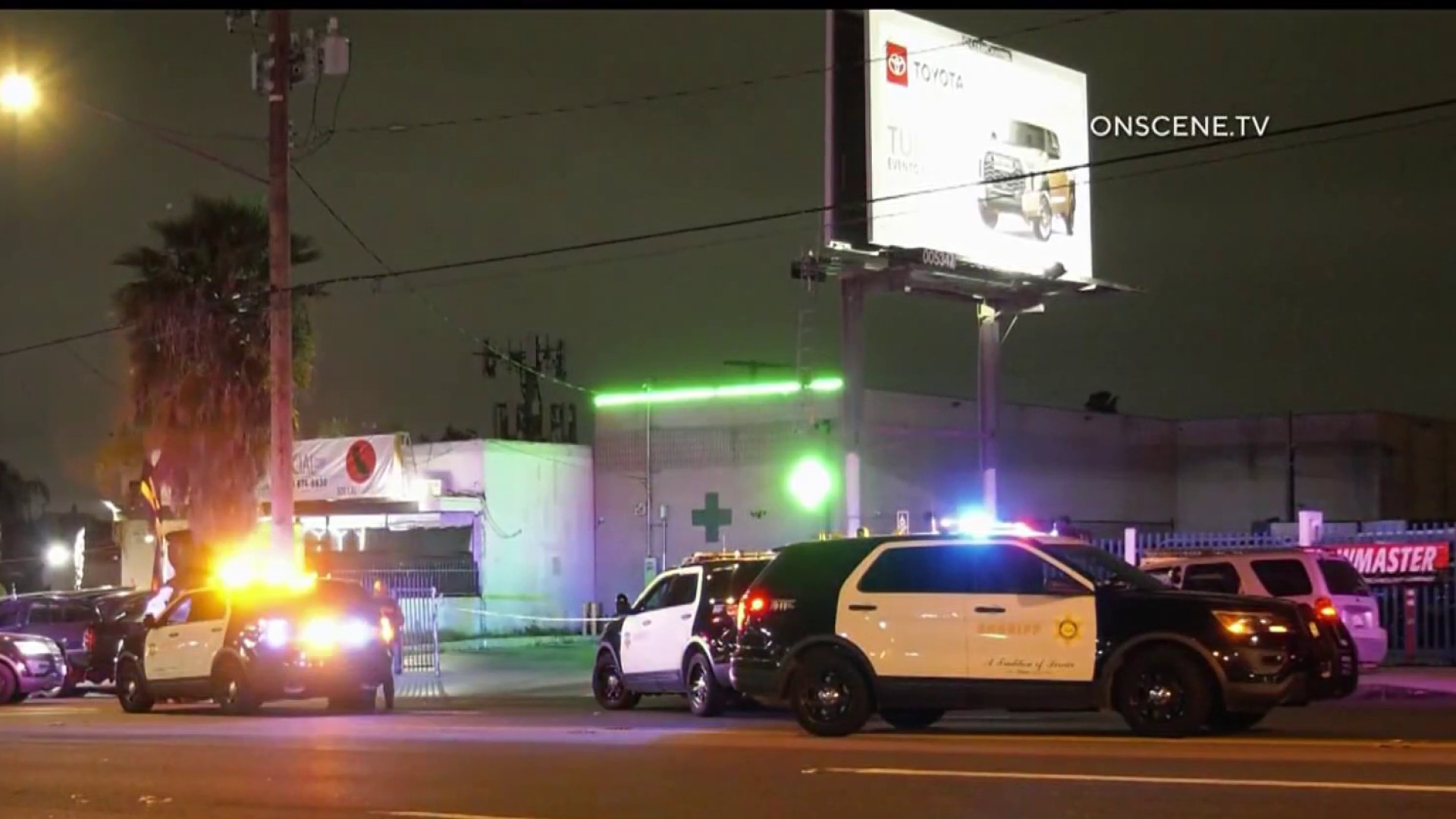Some members of the Los Angeles Police Commission said Tuesday the LAPD may need to review some of its policing strategies in light of a Los Angeles Times report that officers more frequently search black and Latino people during traffic stops than white people.
"It's important that ... we acknowledge the role that policing has played and continues to play in justice and discrimination and that we face head-on the adverse impact that some of these policing strategies are having on people of color, and in particular black men in South LA," Commissioner Shane Murphy Goldsmith said.
Commissioner Steve Soboroff said the board could argue over the statistics reported by the Los Angeles Times, but examining the department's policing policies would be a better path forward.
According to the analysis by The Times, although black and Latino people were more often searched during traffic stops, whites were more likely to be found with illegal items. The analysis was billed by The Times as the first in 10 years to calculate racial breakdowns of searches and other actions by LAPD officers after they pull over vehicles.
In a statement issued Wednesday, the LAPD said the report does not tell "a complete story."
"Regarding the LA Times analysis of some of our stop and search data, we do not believe the information provided tells a complete story," the department said in the statement. "While the numbers presented reflect racial disparities when compared to the proportions of residential population, they do not define or describe the circumstances of each stop or search. As the LA Times has previously reported, the disparities neither prove nor disprove racial profiling or other improper action by the Department or individual officer involved."
The department said it responds to and investigates any case in which a driver claims the officers' actions were improper.
News
Top news of the day
"Policing Los Angeles requires the flexibility to respond to changing criminal activity and for the ability to deploy resources into communities that are being victimize," the LAPD said. "We are mindful that these heightened responses may create anxiety at times for portions of communities that may already feel 'over-policed.'
"Most recently we have taken steps to more actively manage the actual number of personnel in some of these neighborhoods to avoid the perception of a constant over-deployment. Additionally, we have reinforced expectations that each stop be conducted in a manner demonstrating our respect for the communities we serve."
According to The Times, the data used in the analysis was obtained under a new California law targeting racial profiling that requires the Los Angeles Police Department and other agencies to record detailed information about every traffic stop.
The analysis found that across the city, 24% of black drivers and passengers were searched, compared with 16% of Latinos and 5% of whites, during a recent 10-month period.
That means a black person in a vehicle was more than four times as likely to be searched by police as a white person, and a Latino was three times as likely, according to The Times.
Yet whites were found with drugs, weapons or other contraband in 20% of searches, compared with 17% for black people and 16% for Latinos. The totals include both searches of the vehicles and pat-down searches of the occupants.
Chief Michel Moore told reporters Tuesday said the information outlined in The Times' report is "an area that we continue to look at."
"We're aware that the disparate impact on communities of color, particularly in South Los Angeles, raises concerns about trust and confidence that this is a department that's sensitive to what our interaction with them are," he said. "I think ... what traffic stops represent is a small area of what our work is. Our work is in many different fronts in regard to public safety, including prevention and intervention efforts."
The Times noted that racial disparities in search rates do not necessarily indicate bias, but could reflect differences in driving behavior, neighborhood crime rates and other factors.
But the lower contraband hit rates for blacks and Latinos raise serious questions about the law enforcement justification for searching them more often than whites, criminologists told The Times.
Stop-and-search statistics are commonly used by law enforcement agencies to gauge the disparate racial impacts of policing, The Times reported.
The U.S. Department of Justice sometimes requires agencies with civil rights issues to collect and analyze the data.
But the LAPD's constitutional policing adviser said this type of analysis does not account for the complexities of a police officer's decisions in sizing up a situation and deciding how to deal with people in a vehicle.
Officers receive training on their own implicit biases and have a lawful basis for every stop and search they perform, said the adviser, Arif Alikhan, who recently left the LAPD.
Alikhan noted that the analysis includes stops where officers exercise little discretion and racial bias is less likely to be a factor, such as a search during an arrest.
"We don't pull people over based on race. We're not supposed to do that," Alikhan said. "It's illegal. It's unconstitutional. And that's not the basis (on which) we do it."
Mayor Eric Garcetti called The Times analysis "both important and timely" and said he is committed to "helping the LAPD make forward progress on issues of race and community relations."
"I look forward to our Police Commission and department leaders using this information to improve best practices, and I expect the department to work consciously and even-handedly to earn the trust of every Angeleno, every day, with every interaction," Garcetti said in a written statement.
According to The Times analysis, black and Latino drivers and passengers were searched more often than whites in almost every part of the city.
Blacks and Latinos were more than three times as likely as whites to be removed from the vehicle and twice as likely to either be handcuffed or detained at the curb, The Times analysis found.
About 3% of blacks and Latinos stopped by the LAPD were arrested, compared with 2% of whites.
Overall, LAPD officers found contraband in 17% of the searches they performed. Most of the contraband was drugs or alcohol, while 9% was firearms.



